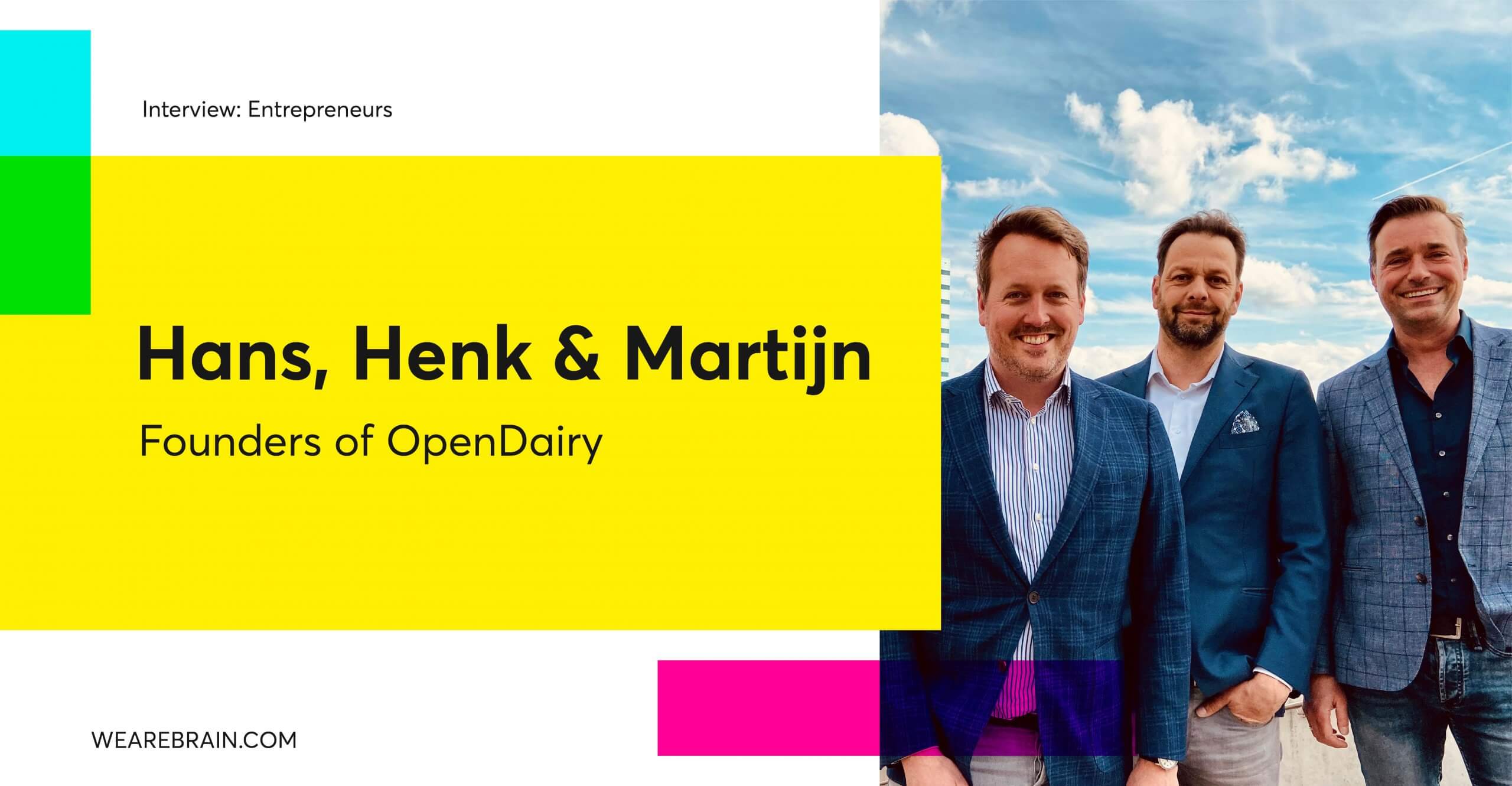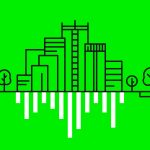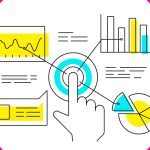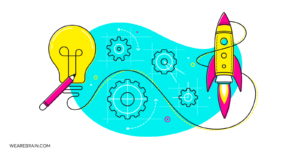A conversation with the founders of OpenDairy

We recently chatted with the three extraordinary founders of OpenDairy, an independent and full-service global B2B marketplace for dairy products. We collaborated with them in the development of their platform, building functionalities such as time zones, unit calculation, language options, and in-app interaction between traders.
Our insightful conversation with the three co-founders: Hans Caspers (Head of Tech), Martijn Goedhart (Head of Growth), and Henk de Weijer (Head of Business Development) brings us closer to understanding the mindset of an entrepreneur and what it takes to successfully kickstart a business.
Here’s what the OpenDairy founders had to say about making it big in the commodities industry.
Q: Please tell us about yourself. What is your background? What’s your experience in the world of entrepreneurship?
Martijn: I studied Business Administration at the Erasmus University in Rotterdam and have been in trading ever since (actually already before) my graduation. I’ve never been an outright entrepreneur previously but I have been responsible for setting up new activities and managing teams during my previous roles. I’ve learned a lot about the food ingredients trading world in the last 10 years and combined that with my ever-present interest in innovation and technology. I have been an entrepreneur for a little more than a year now and I am really enjoying the ride!
Hans: I studied International Management in Amsterdam and began my entrepreneurial journey during my studies. After my graduation, I spent a few years working for a startup in San Francisco, close to the Mecca of startups, Silicon Valley. Since my return, I have founded, closed, and sold several companies active in the digital media and advertising industry. Not all ventures were successful, but they did teach me valuable lessons as an entrepreneur. Now I have the chance to do what I like doing most: starting a new company!
Henk: I studied International Management in Amsterdam, just like Hans, and started my career in the Open Outcry pit at The Amsterdam Option Exchange. In 2003, it migrated to electronic trading, making accessibility and pricing faster and more transparent for everyone. I already got to see how IT can change markets and be beneficial for all stakeholders. In 2008, I started trading dairy and loved the dynamics of the commodities. Now we are at the starting point of changing this industry as we have seen in 2003 in the derivatives market. Making it transparent for all stakeholders.
Q: When did the idea for OpenDairy come to life? And how did it happen?
Martijn: We have always been inspired by B2C e-commerce. Successful initiatives always start with a problem recognised but accepted by users due to the lack of a better proposition. The way of trading B2B ingredients hasn’t changed much over the last twenty years. It’s still very labour-intensive, intransparent, and inefficient. Due to the ‘consumerisation’ of B2B markets, we noticed a growing need for a better and modernised solution. Actually, we were struggling with that very problem when starting our physical trade business, like where to book containers and how to finance sales, etc. That started our journey into building the first full-service marketplace for commodities. And as we knew the dairy market well, it was the logical place to start.
Q: How do you split the tasks between the three of the founders? How do you make decisions?
Hans: This comes really naturally. Both Martijn and Henk have clear expertise that I don’t have, and our combined range of knowledge and expertise are very complementary, which makes determining who does what a lot easier. Decisions are made together most of the time and since it’s just us three currently, this is a very swift process. Small decisions that don’t impact the course and position of the company and product much don’t need any discussions at all.
Q: What would you say are your competitive advantages?
Henk: The real competitive advantage lies in the fact that we offer the complete ecosystem. Next to smart matchmaking, whereby both seller and buyer know exactly what they trade, we provide logistics and finance, but only when it brings value to the chain. We offer the chain the possibility to choose these tools only when it makes sense. If these elements are not competitive they can still choose their existing chain. We embrace competition in these elements in order to keep as much value within the value chain as possible.
Q: With OpenDairy you aim to build a very open platform ecosystem offering a broad set of value-added services. Which are those? What’s the bigger idea behind this? How does this benefit your customers and your partners? Also, could you explain what you mean by “Direct Services”?
Martijn: We could go on for hours about this, but we basically combine all the services needed for a successful transaction in a few modules:
- Matching: it all starts with supply and demand. We digitise specifications to make sure a buyer gets the product according to their specification.
- Logistics: A buyer can pick their own logistics options (eg. faster transit or least CO2 emissions). We make these options transparent and have top-notch forwarders manage the shipments. It’s so much more efficient and easier to oversee.
- Order management: prepared on blockchain solutions, we make sure everyone does what they agreed to do. So all documents required in a shipment are managed through the portal. Documents are uploaded and approved by the buyer. Once all documents are agreed upon, the financing party also gets a notification so payments can be made.
- Financing: commodity trade finance should be easy. The reason this has become such a hot topic over the last few years is the lack of transparency. Financing traders with large amounts of money results in lack of control and visibility. Obviously, things can go wrong without anyone being able to predict. With OpenDairy, banks and financing parties know exactly what they are financing and who the counterparties are. And they know the exact location of the underlying goods. This results in more finance possibilities and better rates for the users.
Regarding the future, OpenDairy is truly open. We see our solution as a platform of information sharing. Everyone can plug in with valuable additions. For example, we’d like market makers to provide forward prices for ingredients. Also, insight into sustainability scores of the producers and buyers would be great to implement. We want to endorse the best decisions, service, and value by providing transparency.
Q: What’s your view on emerging technologies such as Blockchain in the context of commodity trading?
Hans: Technology in its essence offers non-digitised processes much-needed optimisation. Replacing the physical document stack with digital versions, offering online track and trace of your shipment, matching supply and demand by the click of a button, are all examples of how technology affects and improves existing processes in commodity trading. A technology like blockchain builds on this digitisation by adding a verifiable and immutable layer of transaction data. It offers all parties in a transaction full transparency and traceability. By integrating supply chain finance with blockchain technology, for instance, smart contracts can be used to release payments as soon as goods are signed off or shipped. I expect the use of blockchain to grow within a lot of industries and commodity trading is definitely no exception.
Q: Are you considering a vertical approach potentially offering trading opportunities for other commodities?
Henk: We believe there are multiple commodity markets that can adopt the same concept that we are now launching in dairy. As we understand dairy, we are focussing on dairy for the time being to find out if the proof is in the pudding. Our focus will ultimately be to become active in multiple commodity markets.
Q: What’s your vision for the commodity market in the future? What role do you aim to play in it with OpenDairy?
Henk: Traceability, accountability, transparency, and a faster supply chain. OpenDairy, which is part of OpenCommodities, aims to become part of the complete chain of transparent, accountable, and traceable supply chain over various commodity asset classes.
Q: You recently participated in two different startup accelerator programs. What motivated this decision? And what would be your advice regarding these types of programs to other entrepreneurs?
Martijn: We were very much aware that our vision was biased. We have become accustomed to the old way of trading and saw room for improvement. However, it’s not about us but about the actual producers and buyers in the market. These accelerator programs structure your approach and force you to “start at the start”. What is the problem you’re solving? Who benefits? Can it be done? Also, it widens your scope, learning from other entrepreneurs in other markets. The advice is: if you think you know it all, don’t join. Force yourself to question everything you know and learned because only that will lead to a good product-market fit.
Q: What things took you by surprise throughout the process of bringing your idea to life? What mistakes (if any) did you make? Any learnings so far?
Martijn: Many things! Building a new proposition means you have to pivot all the time. Sometimes you want something which is not possible, sometimes you find out it is even more possible than you wished for. In general, we were very surprised about how well the idea resonated with non-dairy people as well. The outline of the idea is very simple, but getting it right is about details. Never skip a part, even when you assume it’s clear. The most important learning for me has been how important it is to have a good, complementary team.
Q: Hans, what key insights and learnings from your previous entrepreneurial ventures do you find most relevant/applicable to OpenDairy?
Hans: The past 30 years or so of being an entrepreneur has taught me tons of stuff: about the different phases your company will go through, the accompanying challenges, and how to deal with them. When it comes to hiring, for instance, I will aim to never hire anyone but the best and surround myself with people that are smarter than me. Also, when attracting investors, make sure you stay in control. Even though you might not have the majority of shares, make sure you are the one in charge of the direction of the company.
Besides your employees, the other people you work with on a daily basis are your partners and customers. In the past, I have taken on some clients or partners that we didn’t have a natural ‘click’ with. These partnerships have never been as successful as they could have been, solely because the human fit wasn’t as good, which made doing business less fun and natural. Do business with people that share the same values and beliefs, it will make the outcome so much more profitable for both sides.
Looking at product development, scalability, and future-readiness is key. Do not build client-specific features if they don’t benefit other users. Also, build modular as specific parts of your platform might become obsolete quicker than others and will need to be redeveloped. If they are embedded into the core of the platform, this poses so many additional challenges than replacing just one module.
Q: Finally, what is one piece of advice you’d give to other budding entrepreneurs?
Hans: It’s hard to give one piece of advice that fits all entrepreneurs, but if anything I would say to always follow your gut. Entrepreneurs have a very specific feel for creating new opportunities and their instinct drives them to accomplish things that are otherwise hard to realise. So, if something doesn’t feel right, think again!
David Roman
Working Machines
An executive’s guide to AI and Intelligent Automation. Working Machines takes a look at how the renewed vigour for the development of Artificial Intelligence and Intelligent Automation technology has begun to change how businesses operate.







